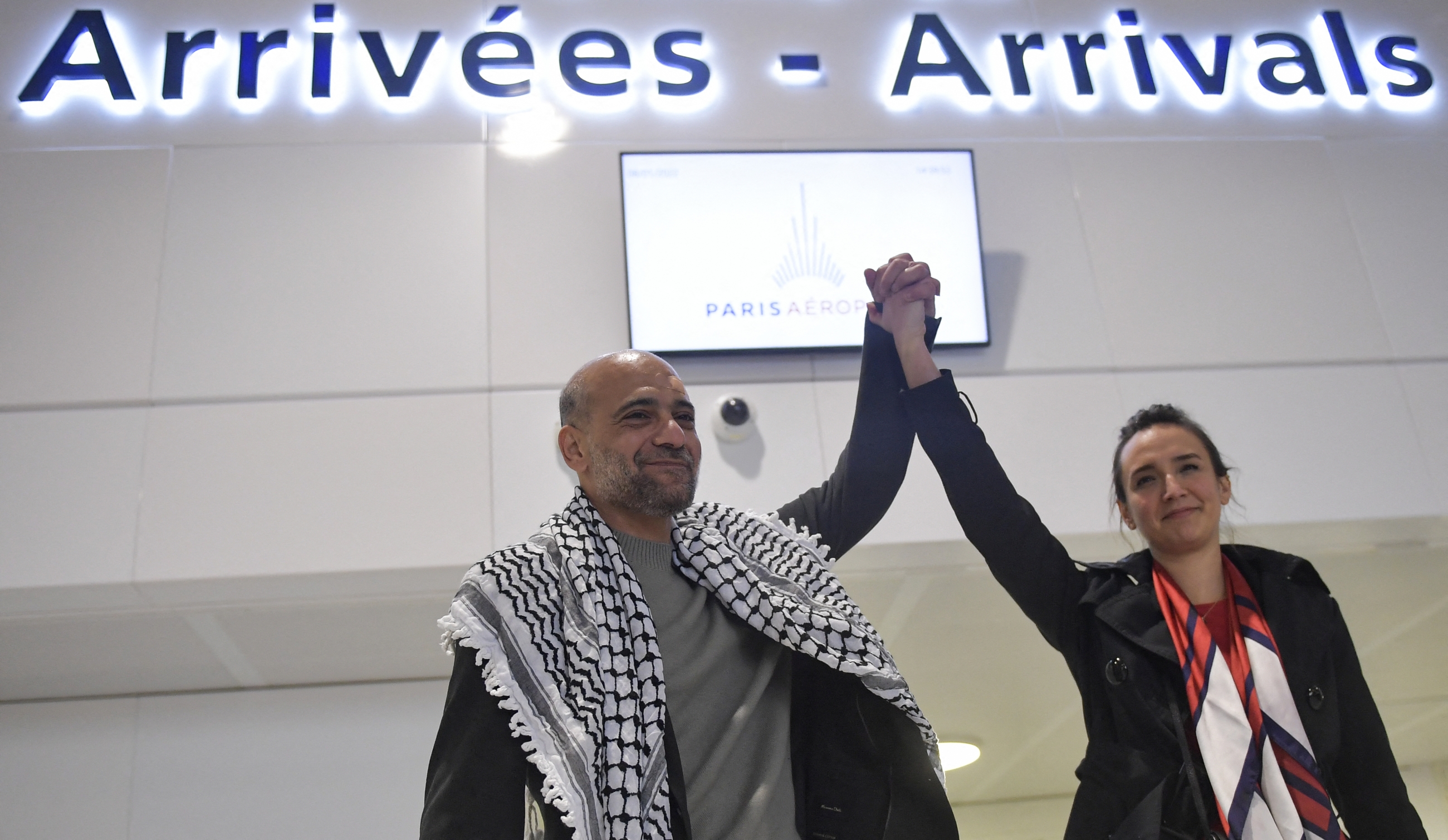Egyptian or free: Political prisoners forced to renounce citizenship to be released

Egyptian-Palestinian Ramy Shaath's release from prison after 900 days came as a huge relief to the rights activist and his family - but it also came at a price.
Like many political prisoners in Egypt with foreign passports, Shaath had his nationality stripped as a pre-condition for his release on 6 January. It's a measure that has been denounced by rights groups and human rights advocates, including Shaath's family.
“No one should have to choose between their freedom and their citizenship. Ramy was born Egyptian, raised as an Egyptian, and Egypt has always been and will always be his homeland; no coerced renunciation of citizenship under duress will ever change that," the family said in a statement.
'Coercing anyone to give up their citizenship in exchange for their freedom is an arbitrary requirement and a clear violation of international law'
- Hussein Bayoumi, Amnesty International
On 13 November 2014, President Abdel Fattah el-Sisi issued a decree (known as Law No. 140) allowing the repatriation of jailed foreigners to their home countries.
The move enabled authorities to release Al Jazeera journalist Peter Greste, an Australian citizen who had been sentenced to seven years in prison a few months before his release.
Stay informed with MEE's newsletters
Sign up to get the latest alerts, insights and analysis, starting with Turkey Unpacked
Greste's release prompted his co-defendant, Canadian-Egyptian national Mohamed Fahmy, to renounce his citizenship in the hope of being released. But that didn't happen until September 2015, when he and another Al Jazeera journalist, Baher Mohamed, were released after a presidential pardon.
"Coercing anyone to give up their citizenship in exchange for their freedom is an arbitrary requirement and a clear violation of international law," Hussein Bayoumi, Egypt researcher at Amnesty International, told Middle East Eye.
"As such an ask lacks the element of consent, it is closer to revocation of citizenship, which under international law is only possible under very strict measures," he said, explaining that the decision must not be based on discrimination due to peaceful expression of an individual's rights.
'Oppressive philosophy'
The news of Shaath's release triggered many calls for the release of political prisoners who do not have foreign passports.
Sisi, in power since ousting his democratically elected predecessor Mohamed Morsi in a 2013 coup, has been accused of jailing more than 60,000 of his peaceful critics. He has defended the crackdown as part of his "war against terrorism", and denied the country has any political prisoners.
'Egyptian detainees don't have the choice to gain their freedom in exchange for renouncing citizenship, although many of them would welcome the opportunity'
- Ahmed Mefreh, Committee for Justice
"The question now is how to release the tens of thousands of political prisoners who only hold Egyptian nationality," said Ahmed Mefreh, an Egyptian lawyer and head of the Geneva-based rights group Committee for Justice.
"Egyptian detainees don't have the choice to gain their freedom in exchange for renouncing citizenship, although many of them would welcome the opportunity if they had it."
In July 2020, Egyptian-American medical student Mohamed Amashah gave up his Egyptian nationality and was then released after 486 days of arbitrary detention, due to his participation in a protest in Cairo and holding a banner calling for “Freedom for all prisoners”.
Likewise, Egyptian-American human rights advocate Mohamed Soltan was released in 2015 in exchange for renouncing his Egyptian nationality. He had been serving a life sentence in connection with the case known in the media as the “Raba’a sit-in operations room”. Soltan, according to his lawyer, did not want to give up his citizenship, but had no other choice.
Commenting on Shaath’s release, Soltan wrote: “To choose between your freedom and the nationality of your country is an easy choice, for freedom always comes first and forever, and your belonging to your country does not diminish because it is in the heart."
However, he added that the Egyptian government, by requiring prisoners to renounce their right to citizenship, "emphasises its oppressive philosophy: to be a citizen essentially means that you are not free!”
Soltan launched NGO the Freedom Initiative following his release, to campaign for the release of prisoners of conscience in Egypt and the Middle East. The group was behind efforts to release Amashah last year, Soltan said.
According to Amnesty's Hussein, the requirement to revoke nationality is an attempt to circumvent Egypt's citizenship law no. 26 (1975). Although the law per se contravenes international law, Hussein says, "by coercing individuals to give up their citizenship, at least on paper voluntarily, the authorities are trying to avoid the need to meet the requirements in the law".
Not all dual nationals have been released, however. Egyptian-American citizen Moustafa Kassem died in custody in January 2020, after going on hunger strike to demand his release, and despite his request to the authorities to allow him to renounce his citizenship, an Egyptian source informed on his case told MEE.
Kassem had been detained since August 2013, and sentenced to 15 years in prison on charges of taking part in the Rabaa anti-coup protests, after a mass trial.
Middle East Eye delivers independent and unrivalled coverage and analysis of the Middle East, North Africa and beyond. To learn more about republishing this content and the associated fees, please fill out this form. More about MEE can be found here.





